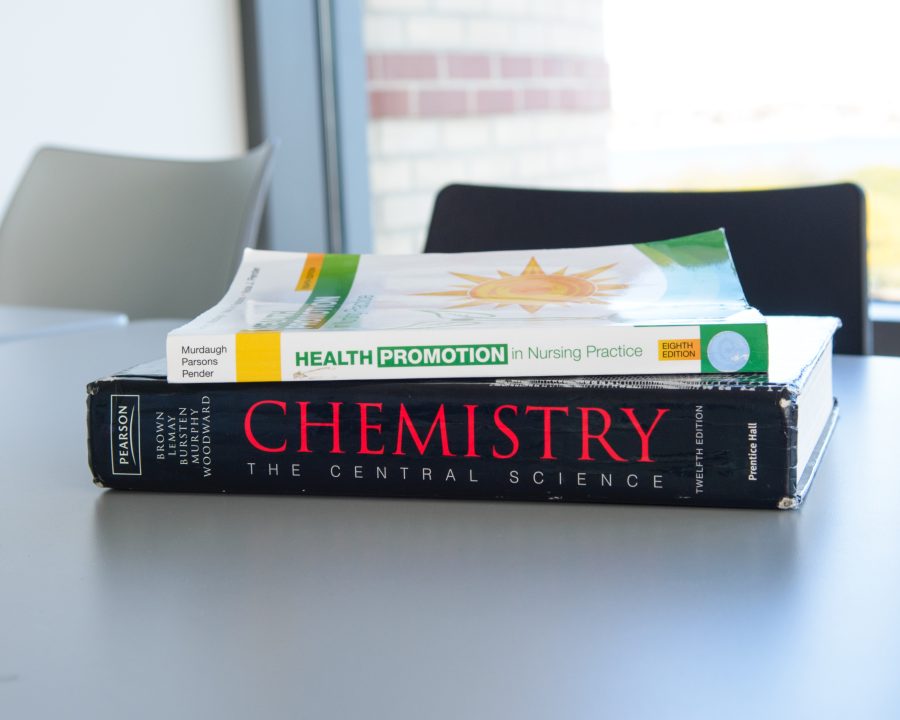Kaplan, Pearson. These are two of the companies that provide textbooks and other educational material to college and high school students across the United States. Private educational companies are a constant staple in American schools and their existence constitutes a major conflict of interest. When you are pursuing a degree, you have no choice but to buy textbooks. If a professor assigns a certain textbook, students are forced to buy it. Textbook companies can charge whatever they want for textbooks because students must buy it to complete a course. This means that there is little competition for textbooks and other educational resources. It is for that reason that private companies in education should be completely eradicated.
Education should be a public good, and the introduction of private companies presents an obvious and blatant ethical dilemma. College’s main purpose must be to provide an education and textbooks provide an additional financial barrier. Textbook companies should not price gouge students or create meaningless “new editions”, or else they should leave the educational sphere.
Private companies exist and do business in many public sectors. From trash collection to package delivery to software, private companies often assist public actors in their daily lives. However, what makes private companies in universities different is that they often prey on financially vulnerable students who are desperate to complete their degree. It is for that reason that other than tuition, textbooks are often the biggest financial burden on students. These private companies have no regard for the financial situations of students, and often schools are left to help students pay for textbooks.
These private companies have one motive in mind: to increase profits by squeezing every last penny out of students. They do this by doing everything they can to require students to buy textbooks if they want to complete a course. For example, with the rise of pirated online PDF textbooks, textbook companies began attaching homework assignments with the textbooks. This made it mandatory for students to buy the textbook legitimately. While I am not encouraging the use of pirated textbooks, there is something to be said about how textbook companies just want to price gouge students, irrespective of students’ somewhat financial weakness. Additionally, textbook companies will release new “editions” with very little being changed.
Let’s look at an example to further understand price gouging. Let’s say you want to buy a pen. You can go to the store and see a variety of pens, all with different prices, and all competing for the same number of customers. This drives down the price of each pen and increases the quality of the pens. However, the same cannot be said about textbooks. Let’s say you are taking Biology 101. The professor might assign Pearson’s Biology 101 textbook. As you can see, while Pearson might compete with Kaplan in the broader marketplace, once a textbook is assigned, Pearson can charge any price for that textbook and students will be forced to buy it.
Students should not be price gouged just to complete a degree. It is simply unethical. Private companies do not exist to help students but exist to make as much money as they can off of students. Students are desperate and if a professor assigns a textbook, they can choose to drop the class or fork up the cash. Clearly, there is an imbalance of power here. Textbooks should not be produced by private companies who only want to make money, but should be created by the educational institutions themselves and provide students with adequate education, without the high cost of textbooks. While textbook companies aren’t the only private companies involved in education, they are the most obvious. It is for that simple, ethical and logical reason that private companies should not be involved in education.
Get private companies out of education
A set of textbooks rests upon a desk. Photo by Olivia Reid / Mass Media Contributor
Contributors
Matthew Reiad, Opinions Editor

Olivia Reid, Photo Editor
Olivia Reid (she/her) is a senior majoring in communications. One of her favorite experiences was covering Taylor Swift’s The Eras Tour and getting to professionally photograph the show.

